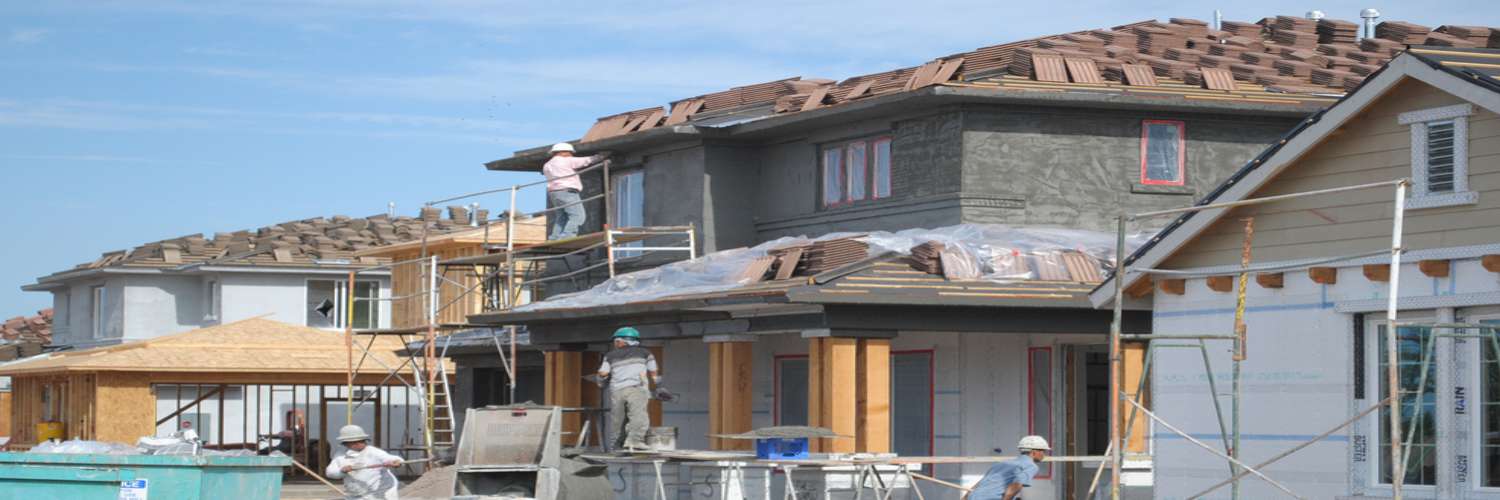The real estate industry plays a key position in fulfilling the requirements of the country’s housing and infrastructure. The Indian National Congress government had in 2013 introduced the Real Estate (Regulation and Development) Bill. In December 2015, based on the recommendations of a Rajya Sabha Committee, the Union Cabinet approved 20 major amendments to the bill. Subsequently, the bill was passed by the Rajya Sabha on 10 March 2016 and by the Lok Sabha on 15 March 2016 with an aim to bring transparency amongst the real estate transactions, so as to protect the interests of the consumers and minimize or eliminate the malpractices done by the developers. While there have been certain developments to the Act over the years, however, it has remained largely uncontrolled and lacking standardization and appropriate consumer-interest protection measures. The main issue for the customers is the failure to provide complete and authentic information on the property they were dealing and the lack of accountability on part of the developers and builders along with the absence of an effective regulation.
This article aims to analyze the Act by identifying the existing loopholes in its operation and implementation and by making certain recommendations to increase its effectiveness.
Real Estate (Regulation and Development) Act, 2016
The Real Estate (Regulation and Development) Act 2016, hereinbelow referred to as the ‘Act’, came into force on 1 May 2016 with 69 out of 90 sections notified by the Ministry of Housing and Urban Poverty Alleviation. The Act was enacted under Entry 6 and Entry 7 of the concurrent list of the Constitution of India. It is applicable to the whole of India, except to the state of Jammu and Kashmir. Provisions such as mandatory disclosure of all project-related information, model contract documents, specification of the carpet area, limitation of the advance payment or application fee to 10% of the cost of the apartment, a deposit of 70% of the amount collected from buyers in the escrow bank account only for the construction of the project, timely completion of the project and strict criminal provisions of RERA covers both residential and commercial properties and it is mandatory to register all projects of more than 500 square meters.
The need to regulate the real estate sector originated from the rising malpractices in the real estate wherein the consumers had to bear a lot of peril which included delayed delivery, the title of the property, quality of the facilities provided, and necessary changes, etc. before they decided to purchase. The Act provides for the creation of a Real Estate Authority and an Appellate Tribunal for each state. Under this authority, the home buyer can also file a complaint in case of any wrongdoing by the builders/developers. A Control Mechanism was surely needed in the Real Estate Sector contributing a good percent in India’s GDP. The accountability and responsibility measures that were taken to come up with RERA were the demand of this industry. Under the Act, the Central and the State governments have been made liable to notify the Rules, within a statutory period of six months. Section 84 of the Act contemplates that within 6 months of the RERA being enforced, State Governments shall make rules for carrying out the provisions of the Act. The said rules shall be notified to the Government of the State concerned.
The Act was introduced with a primary goal of restoring consumer confidence by regulating business practices and transactions in the real estate sector. The entire standardization phase included the creation of state-level Real Estate Regulatory Authority to promote the growth of the real estate market and a customer-oriented mechanism through which the consumers’ interests cannot be affected. RERA acts as a medium for the information that flows between the buyer and seller. It sets the promoters’ accountability and brings with it an unambiguous sector transaction. It also brings business sector uniformity and standardization. And most importantly it establishes a system for dispute redress in the real estate sector.
Background of RERA
A need for a comprehensive regulatory body was felt for tackling the struggling real estate sector. The National Housing/Urban Development and Municipal Administration Ministers Conference of 2009, concentrated on the affordable housing for all. The outcome of this conference included a greater emphasis on urban land-use policies, roadmaps for slum-free cities, managerial and financial strengthening of local public bodies, and analysis of the existing regulatory and legal frameworks. The recommendations also included the creation of a model Real Estate Regulation Bill by the Ministry of Housing and Urban Poverty Alleviation which addresses the issues of land valuation system and urban development regulation. After that, the Central Government had consultations with India’s Competition Commission, Tariff Commission and Consumer Ministry to enact a model law for the real estate sector. In July 2011, the Ministry of Law and Justice suggested that the legislation comes under the Concurrent List of the Constitution. Subsequently, on 14 August 2013, the Real Estate (Regulation and Development) Bill was introduced in the Rajya Sabha. In order to protect consumers and ensure standardization of real estate transactions, the Bill established a number of state-level Real Estate regulatory authorities. It offered transparent and efficient supervision and promotion of real estate.
Prior to the introduction of the Real Estate (Regulation and Development) Act, 2016, Indian real estate customers had little legal recourse and they were offered consumer protection under various acts such as the Indian Contract Act, 1872; the Consumer Protection Act, 1986. Indian consumers had to approach various authorities, such as the Consumer Courts and the Civil Courts, to deal with their grievances. Also, prior to the introduction of the above Act, there was no single regulatory authority for the regulation of the real estate sector, and buyers had to face various problems such as timely delivery of projects, delay in handing over the possession by the developer, high-interest rates charged on late payments, multiple bookings for the same property, project failures, etc. On the other hand, developers had to overcome the issues such as delays in building permits, late payments by homeowners, and non-transparent operations.
“Real Estate cannot be lost or stolen, nor can it be carried away. Purchased with common sense, paid in full, and managed with reasonable care, it is the safest investment in the world.” – Franklin D. Roosevelt
The truth of this statement is inevitable even today, as the scurry of owning a home is high at all times. In this regard, with the advent of the Real Estate (Regulation and Development) Act, 2016 (RERA), we now have a central piece of legislation governing the rights and obligations of all key players in the real estate sector, which was previously largely governed by the local laws of each State.
Key Objectives of RERA
The Real Estate sector continues to play a key role in contributing to India’s economic growth strategy even after four years of RERA, and is one of the largest sources of job creation, making it a strategic sector for nation-building. Unfortunately, the sector has been defined in the past by high rates of knowledge asymmetry in the absence of a regulator, frequently contributing to distrust and low confidence among stakeholders-like home buyers, financiers, and developers. The Real Estate Act (Regulation and Development) or RERA passed by the Indian Parliament in 2016 is a fresh take to solve these lacunae. The RERA Act was enacted taking into account the interests of home buyers long exposed to widespread vulnerabilities, which impacted demand and led to the slowdown in sales.
RERA mainly aims at regulating and promoting the real estate sector, ensuring transparency in the real estate project transactions in an efficient manner, safeguarding consumer interests and creating a customer-friendly environment along with creating a system for adjudicating the timely resolution of conflicts by distinguishing those brought within the authority of the Appellate Tribunal. Despite being at the nascent stage, it is reassuring to note that we have seen a decline in some of the typical grievances, such as delays in delivery, false advertising, and incorrect charges for excess areas etc. Some of the main objectives of RERA include the following:
- It establishes a centralized Real Estate regulatory authority, a specific adjudicatory authority, and a Central Advisory Council. This also directs the States to create guidelines for controlling the real estate industry in compliance with this Act.
- It enables the transfer of risk-bearing from Customers to Developers by including liability of promoters, builders, developers, real estate agents, etc.
- The Act sets out a process for real-estate transactions in which the maintenance of a separate bank account for each project is compulsory, of which only 30% of the total may be appropriated. The remaining 70% will only be used for the same project.
- No sale or advertisement of any real estate project is permitted without prior registration with the authority concerned. Provision of mandatory disclosure of all project details, e.g. from all accounts, audits, and reports, etc., to details of the promoters, developers, agents, engineers, architects and approval authorities, etc., and published on a single website for real estate projects.
- It clearly defines the rights, responsibilities and functions of all parties to the project.
- Significant decrease of malpractice, penalty provisions and penalties for offenses committed by promoters, real estate agents allotted persons and companies.
- The Act supersedes all State legislation which is incompatible with the Central Act and also delegates the power to the Member States to draw up their own legislation on real estate in accordance with the Central Act.
- Under RERA, a timely grievance redressal process was developed. The commission’s regulator/adjudication officer has been empowered to investigate consumer or suo moto concerns regarding infringement of the Act. Real Estate Appellate Tribunal (REAT) is to be formed to deal with appeals more quickly. A period of 60 days is specified for redressals. Instead of consumer forums/courts, where they are clubbed with several other consumer disputes, this would create a concentrated platform for real estate dispute redress.
Under the RERA law, every state government is required to establish a regulatory authority and implement its own set of rules and regulations within the scope of the statute’s provisions. Accordingly, rules and regulations have been formulated and real estate regulatory authorities (each ‘Authority’ and collectively ‘Authorities’) have been set up by governments of different states in accordance with RERA’s mandate.
Adjudication before RERA
Until RERA, land ventures were legally required by the Town and Country Planning Act or the Apartment Ownership Act. The Town and Country Planning Act was used specifically for the control and growth of land use. The specific property owner of an apartment came under the Apartment Ownership Act. The grievances were dealt with under the Consumer Protection Act, 1986. A consumer (home buyer) may file a complaint with the District Consumer Dispute Redressal Forum, the State Consumer Dispute Redressal Commission or the National Consumer Dispute Redressal Commission. The absence of a single regulatory institution for addressing multiple issues in the real estate sector has been one of the prominent reasons for setting up the Real Estate Regulatory Authority. Nevertheless, the significant debate has been conducted when contrasting RERA with the National Consumer Dispute Redressal Commission (NCDRC) in terms of redress and validity of complaints. Although consumers can still contact the NCDRC for complaints about real estate, the Forum cannot initiate suo moto complaints of this sort. In addition, the consumer forum can’t perform any inquiries. However, RERA has the power to take suo moto action against perpetrators, as well as investigate the matter.
Penal Provisions Under RERA
Promoters
| Offenses | Punishment |
|---|---|
| 1. Violation of Law | 1. It shall be punishable with around 3 years of imprisonment or a fine of 10% of the cost of the building. |
| 2. Non- registration of a project | 2. Shall be punishable with a fine of 10% of the estimated cost of the building. |
| 3. False information | 3. Shall be punishable with a fine of 5% of the cost of the building. |
Agents
| Offenses | Punishment |
|---|---|
| 1. Failure to comply with Authority | 1. It shall be punishable with a penalty on daily basis which may extend to 5% cost of the building. |
| 2. Failure to comply with tribunals | 2. It shall be punishable with an imprisonment of 1 year with or without fine, which may extend to 10% of the cost of the building. |
| 3. Failure to comply with Authority | 3. It shall be punishable with a fine of Rs.10,000 per day or 5% of the total cost of the building. |
| 4. Failure to comply with Tribunal | 4. It shall be punishable with an imprisonment of 1 year with or without fine. The fine may extend to 10% of the cost of the building. |
| 5. Non- Registration | 5. It shall be punishable with a fine of Rs.10,000 per day or 5% of the total cost of the building. |
Impact on Indian Economy
The three policies implemented together were demonetization, GST and RERA which at the time had several effects on the Indian economy. Demonetization has also affected the middle class and the lower class. RERA was put into effect after six months of demonetization which again detrimentally affected the real estate market. The introduction of RERA with the intention of regulating the real estate market has since its inception turned out to be an impediment to its development.
RERA directly impacted small-scale developers and contractors in the metropolitan areas due to the lack of job prospects for the workers as many of the planned real estate projects were either abandoned or delayed until they were registered with the RERA. The change in liability and increased responsibility of the builders in terms of the delivery of the property was balanced by the developers by a collective increase in the price of the properties up to 40 percent more than their previous prices within a fortnight in Mumbai, 30-40 percent in Bangalore and around 25-30 percent in Delhi; although the expected price rise was not more than 10 percent. Moreover, demonetization reached the buying power so there were even smaller buyers on the market. The situation arose in which the sellers could not possibly sell the property at lower prices due to limited incentives and buyers were unwilling to buy property due to their income hit by demonetization or the reduced liquidity of the property and were simply waiting for the sellers to lower the price. But the real estate market has been sluggish.
Lacunas in the RERA Act
- RERA describes categorically what is a carpet area but, in order to better grasp the net functional area, it should also include the area sold to the allottees for their individual use, such as the living room, the bedroom, the kitchen area, and the lavatory. This area is not to include the area enclosed by walls of partition.
- Section 3 of the RERA makes it mandatory for every potential project to be registered under the Act. RERA also bars pre-launches in the absence of authorization by the agency concerned. The challenge occurs as several phases include the construction of a real estate project and then approval is to be obtained for each project. The project’s progress will face hindrance due to the lack of a single-window clearance and be delayed. For example, if a project is made in Delhi then it needs the developer to obtain 41 permits or clearance within 60 days.
- In most states, full implementation of the RERA Act 2016, began in May 2017. However, as in 2019, there are still several states and Union Territories that do not even have their respective Real Estate Authority’s website launched. States such as Assam, Arunachal Pradesh, Tripura, Lakshadweep, Kerala, and so on are a perfect example of this graph.
- Insufficient recovery powers with RERA tend to be a big lacuna that fails to comply with all the orders issued in favor of homebuyers by the RERA authorities of their respective states.
- The challenge occurs as several phases include the construction of the real estate project then the approval is to be obtained for each project. The project’s progress will face hindrance due to the lack of a single-window clearance and be delayed. For example, if a project is made in Delhi then it needs the developer to obtain 41 permits or clearance within 60 days. Whereas Section 32 of the Act states that it is the duty of the RERA to make a recommendation on the development of a single-window system to the appropriate government of the competent authority to see if the project is completed in due time.
Judicial Insight of RERA
Section 3(1) of the RERA prohibits a promoter from, inter alia, advertising, selling or offering to sell any property, apartment or building in a real estate project, without the Authority having registered such real estate project. On the other hand, Section 3(2) of RERA offers exemptions for such real estate projects from the registration under RERA.
- The Haryana Real Estate Regulatory Authority, Panchkula (HARERA Panchkula), in its landmark judgment in Sanju Jain vs. TDI Infrastructure Ltd. addressed the question of whether the Authority had jurisdiction over unregistered projects in the affirmative. In addition, as regards the applicability of the RERA provisions to promoters of unregistered projects, the Authority held that:
Section 11 of the Act defined and elaborates on the functions and duties of a promoter. Nowhere in this section is used the expression ‘Promoter of a registered project’ and since the expression used everywhere in the Section is ‘Promoter’, it cannot be legitimately argued that the duties cast upon the promoter will be applicable only to the promoter of a registered project and not to the promoter of an unregistered project.
Section 34(f) of the Act enjoins a duty upon the Authority to ensure compliance of all the obligations by the stake-holders in the real estate project as envisaged under the Act, Rules and Regulations made thereunder. There is no provision in the Act which expressly or impliedly provides that duties, responsibilities and obligations of a promoter towards his allottees will cease to exist upon grant of completion or occupation certificate. So, no promoter can be allowed to argue that he stands absolved of discharging his statutory obligations after receipt of completion certificate or that the Authority after the grant of completion certificate will have no jurisdiction to adjudicate the complaints of the allottees.
That apart, the issuance of a part or full completion certificate will not be conclusive proof of the fact that the project has been developed as envisaged under the agreement of sale executed between the promoter and the allottee. Unless the development of the project is carried out in the manner as promised to the allottee under the agreement of sale, the allottee may have some genuine grievance against the promoter and will have the right to invoke the jurisdiction of this Authority for redressal of his grievance, irrespective of the fact that the promoter had obtained a completion/part completion or a occupation certificate for his project. The actual status of the project in such eventuality shall always remain a subject for verification by the Authority in order to determine whether or not the promoter has discharged his obligations in respect of development works. Thus viewed, no promoter can save himself from discharging his obligations on the ground that he has obtained a completion/occupancy certificate in respect of his project and this Authority has jurisdiction to adjudicate upon the complaint filed against a promoter regarding non-performance of his obligations.
The other relevant decision in this respect was taken by the Haryana Real Estate Regulatory Authority, Gurugram (“HARERA Gurugram”) in the case of Simmi Sikka vs. Emaar MGF Land Limited, where the HARERA Gurugram summarised its views on the applicability of RERA and the Authorities’ jurisdiction as follows:
Applicability of the Act
(a) The Real Estate (Regulation and Development) Act, 2016 mentions nowhere that it is applicable only for registered projects.
(b) The Real Estate (Regulation and Development) Act, 2016 provides certain categories of projects that are not required to be registered but these are within the ambit of the Act. These projects mentioned in section 3(2) have been taken out of registration requirements but not out of the purview of other provisions of the Act.
(c) The provisions regarding registration and obligation during registration is applicable only for the registered projects.
(g) A complaint pertaining to violation of provisions of the Real Estate (Regulation and Development) Act, 2016, the Haryana Real Estate (Regulation and Development) Rules, 2017 and regulation thereunder may be filed by any aggrieved person in respect of real estate belonging to any real estate project which qualifies to be a real estate project as per the definition given in section 2(z)(n) of the Real Estate (Regulation and Development) Act, 2016. (emphasis supplied)
- With respect to the applicability of RERA, both the Haryana Authorities in Sanju Jain vs. TDI Infrastructure Ltd. (supra) and Simmi Sikka vs. Emaar MGF Land Limited (supra) placed more emphasis on the absence of certain terms and conditions than on the specific provisions of RERA as they exist today. While the HARERA Gurugram stated that the ventures listed under Section 3(2) were not removed from the RERA requirements, the Authority did not include any justification for such a view. It is respectfully claimed that the absence of a consistent understanding of RERA’s requirements will contribute only to greater uncertainty as to the applicability of this law.
Right to Refund
- On the issue of whether an allottee can demand refund while withdrawing from a project which was near completion, the HARERA Panchkula’s view can be effectively summed up by its decision in the case of Baldev Singh vs. Ultratech Township Developers Private Limited. The Authority in such case has ruled that –
“In case the relief of refund is granted to the complainant, interests of the rest of the non-complainant allottees could also get seriously jeopardized. Moreover, the respondent has stated in his reply that the flat of the respondent is complete and ready for possession and the complainant can take possession of the flat after clearing his pending dues. Thus, in the opinion of this Authority, it not only is entrusted with the responsibility to protect the interest of the home-buyers including the complainant but also has to promote orderly growth of real estate industry through efficient project execution in the larger public interest.”
(Emphasis Supplied)
- A similar view has been held by HARERA Gurugram in a string of decisions37, wherein the Authority has observed that –
“The authority is of the view that in case the refund is allowed in the instant complaint, it shall adversely affect the right of allottees who wish to continue with the project. Further, it will also hamper the completion of the project. Therefore, in the interest of justice, the relief sought by the complainant regarding refund of the deposited amount cannot be allowed.”
(Emphasis Supplied)
As is evident from the decisions mentioned in the preceding section, both the authorities have consistently held that the demand for a refund of an allottee shall not be permitted in cases where the real estate projects were near completion or completion. However, it may be noteworthy to note that in cases where the construction of a project was either negligible or bleak, in fact, HARERA Gurugram has upheld the right of allottees to obtain refunds from the promoters of such projects for their investments.
Conclusion
In order to protect the rights of both buyers and sellers and other parties to the transaction and promote the dissemination of information to the parties, the Real Estate (Regulation and Development) Act 2016 was implemented with a purpose for controlling and promoting the unregulated real estate market. India’s regulatory index scores low due to a lack of proper compliance mechanisms in the real estate market. It also aimed to create a separate adjudicatory process as introduced under the bill, to settle conflicts more rapidly between the promoter and the purchaser or the purchaser and the agent.
On the other hand, considering that land is a finite resource compared to the limitless demand of real estate, RERA and the subsequently established Authorities would play a crucial role in the future. Currently, the evolution of RERA jurisprudence is taking place at various paces in different States. From the above-mentioned decisions, it is clear that each Authority has different views on the same subject matter, resulting in an inconsistency in the security of allottee interests in different States. Therefore, while an allottee in the State of Maharashtra can file a complaint with the Authority about an unregistered project, an allottee in the State of Punjab is unable to do so. Likewise, though an allottee can obtain a refund in the State of Karnataka if he so chooses, an allottee in the State of Haryana does not. Such a dichotomy of views with regard to the same provision may negate the intent for which the RERA was enacted, i.e. a central law in the interests of effective consumer security, continuity, and standardization of business practices and transactions in the real estate sector. However, there is still a huge scope for improvement in the implementation of the act and it needs legislative amendments by consulting stakeholders.
This article is written by M Nikitha. The author can be contacted via email at nikitha@bnblegal.com
For more information and professional consultation regarding property matters, our expert property lawyers in Chandigarh can be contacted from Monday to Friday between 10:00 am to 6:00 pm and between 10:00 am to 2:00 pm on Saturdays.









